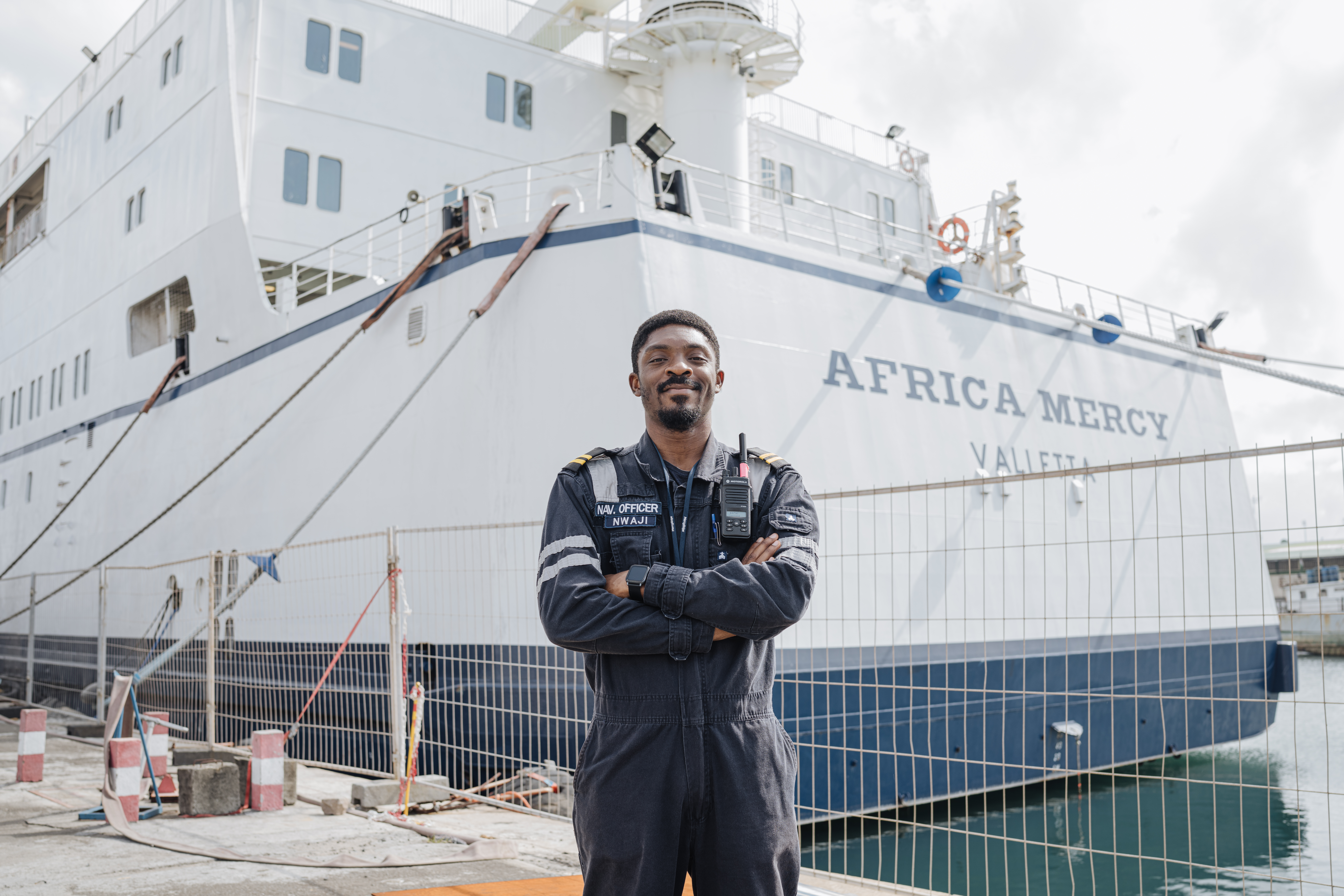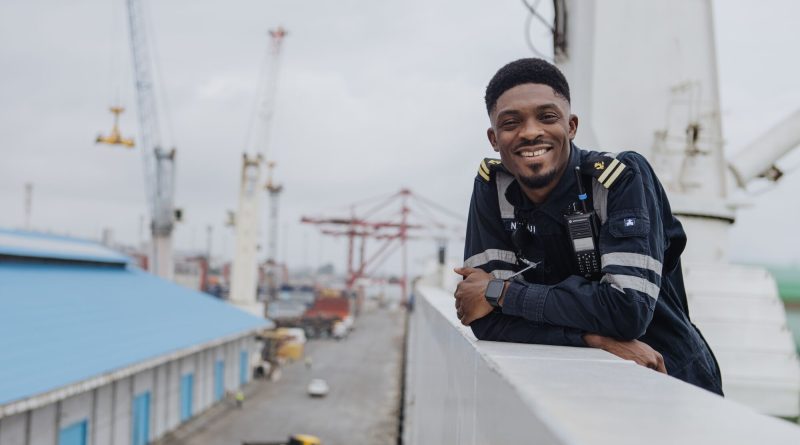Championing Healthier Oceans and Lives: Mercy Ships Crews Advocate for Sustainability While Supporting Communities in Need
Freetown – The theme for this year’s World Maritime Day, “Our Ocean, Our Obligation, Our Opportunity”, highlights the ocean’s significance in our lives and our duty to safeguard it.
A poignant story that exemplifies this connection is that of Emmanuel, a 34-year-old maritime officer from Nigeria, aboard the Global Mercy.
For him, the ocean is more than just a means of transportation; it acts as a global link. With 40% of the global population living near coastlines (source), the ocean is vital not just for trade but also for reaching those in dire need.
“95% of international trade depends on the maritime sector, and I became intrigued by the opportunities that a robust maritime system can create for nations,” Emmanuel shared.

Emmanuel’s experience is primarily rooted in his time working on oil and gas tankers.
His responsibilities included complex ship-to-ship operations, oil transfer procedures, and various maneuvering activities.
“I gained a wealth of knowledge in navigation, cargo management, seamanship, and bridge operations,” Emmanuel recalls.
Yet, he felt a profound urge to use his maritime expertise for humanitarian purposes.
In pursuit of this, Emmanuel joined Mercy Ships, leveraging his skills for those less fortunate.
His first experience with Mercy Ships was aboard the Africa Mercy® where he served for three months in 2024.
“As a sailor, the experience was completely different from what one typically encounters in commercial shipping,” he remarked.
“Mercy Ships opened my eyes to the urgent needs throughout Africa.
“The impact was remarkable; in just one deployment, the ship performs over a thousand surgeries.
“I’m ecstatic that this initiative is based in Africa, and I’m honored to be part of it.”
While the ocean facilitates this essential mission, it equally demands respect and care.
This is why Mercy Ships is committed to environmental responsibility, embedding sustainable practices into daily ship operations.
Innovative bio-reactor sewage systems and eco-friendly cleaning products ensure that only treated water is released from the vessels.
Additionally, ballast water treatment systems protect biodiversity by stopping the spread of harmful marine species.
“Our ships operate thanks to the ocean’s generosity,” Emmanuel stresses.
“We have a responsibility to honor the waters we navigate, as they are living ecosystems that connect us all.”
To share in this responsibility, the Global Mercy was designed for sustainability, consuming 15% less energy through cutting-edge air conditioning, recycling up to half of its water, and promoting a “two-minute shower” policy.
Everyday choices also contribute greatly to this mission.
“Coffee and tea are served in reusable mugs, and every volunteer is given a refillable water bottle to reduce plastic waste,” Emmanuel explains.
“Waste management is treated with utmost seriousness.
“Medical waste is incinerated safely onboard, while electronic waste is stored until it can be recycled in Europe.
“I highly encourage fellow mariners to volunteer with Mercy Ships,” Emmanuel asserts.
“Even just once can radically change how one views the maritime industry’s role.”
Each year, over 2,500 volunteer professionals from more than 60 countries offer their skills aboard the world’s two largest non-governmental hospital ships, the Africa Mercy and the Global Mercy.
Surgeons, dentists, nurses, health trainers, chefs, and engineers dedicate their time and knowledge to enhance access to safe surgical and anesthetic care.
Founded in 1978, Mercy Ships operates in 16 countries and has a service hub in Dakar, Senegal.
For more information, visit www.MercyShips.org and follow @MercyShips on social media.

